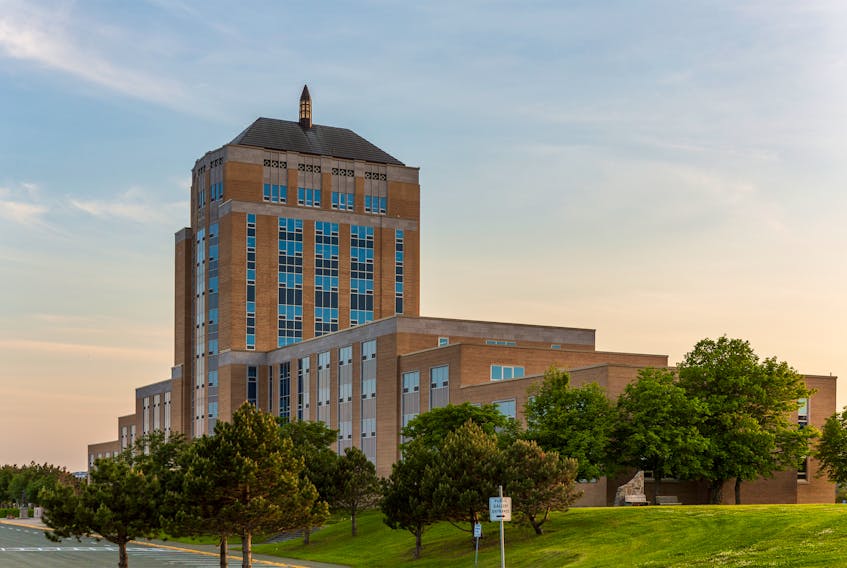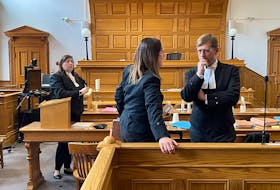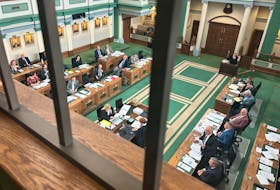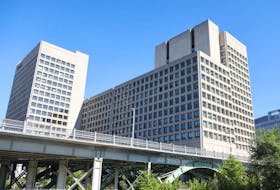ST. JOHN'S, N.L. — The long-awaited 2020-21 budget for Newfoundland and Labrador to be tabled today comes at a time when the fiscal state of the province is at its most dire.
The Telegram received briefing materials provided to Premier Andrew Furey from the Department of Finance upon being sworn into office through Access to Information requests.
To be frank: they’re not pretty.
In July, the Department of Finance gave its fiscal update, forecasting what to expect in terms of revenue, expenditure and deficit for the 2020-21 fiscal year. The department is projecting a $2.1 billion deficit — the second-worst in the province’s history, after the 2015-16 budget.
The documents provided as part of the premier’s transition into power show just how bad the situation is, historically.

Aside from 2015-16, the last time the province saw as little revenue in a single year as is projected to be revealed today — $6.8 billion – was in 2006-07, when the province saw $5.5 billion flowing into provincial coffers. Instead of a deficit, the province ran a small surplus of $154 million.
That year government expenditures were at $5.3 billion. In 2020-21, expenditures will hit the highest mark in the province’s history — a projected $8.9 billion in spending.
A huge portion of that expenditure is a direct result of the massive debt of the province. The net debt for the province will hit $16.7 billion, also the highest mark in the province’s history. On a per-capita basis, every person in the province owes $32,204 to balance out the debt.
Finance department officials have stated 30 per cent of that debt is directly related to the Muskrat Falls project, which was confirmed with the updated $13.1 billion price tag on Monday.
In the previous year’s budget, debt servicing cost the province $1.3 billion.
To compare, the cost of K-12 and post-secondary education combined was just over $1.4 billion.
While an election must be held within the next 11 months according to provincial legislation, politicians have told the public not to expect an election-style budget.
The government has previously stated the budget was already well along when Furey took office, with limited input from the incoming premier.

The financial state of Newfoundland and Labrador has been tethered to rise and fall of oil and gas long before 2020-21.
The dual impact of the continuing COVID-19 pandemic and the ever-volatile price of oil have shattered what was already a fragile economy — particularly due to oil volatility.
The province had anticipated $1.09 billion in oil royalties in the original 2019-20 budget document. In reality, the province is expecting to take in less than $500 million in oil royalties for 2020-21.
Added to that, between 1989 and 2019, Newfoundland and Labrador is the only province to have lost population — an almost 10 per cent decrease, according to the briefing materials provided to the premier.
Each person or family who leaves the province means that much less income tax taken in, further compounding the fiscal woes.
One bright spot in the fiscal picture is the mining industry — an industry Furey is familiar with having served on the board of directors of Alderon Mining before the company folded after failing to pay a $14-million loan in April.
The briefing materials show the province has shipped an estimated $3.5 billion worth of material — primarily iron ore — in 2019.
Mining provides a glimmer of hope to a province on the ropes, financially.
All this to say, unless a major influx of cash from the federal government is announced on today, don’t expect a happy budget day in Newfoundland and Labrador.
While the COVID-19 pandemic will someday end, the fiscal woes brought on by massive debt, declining population and reliance on oil and gas volatility mean something has to give, something has to change about the way Newfoundland and Labrador is managed.
If not, the oft-promised future of a province fit to raise a family, pursue a career and live comfortably will not be delivered.
David Maher is The Telegram’s legislative reporter.
[email protected]
@DavidMaherNL









